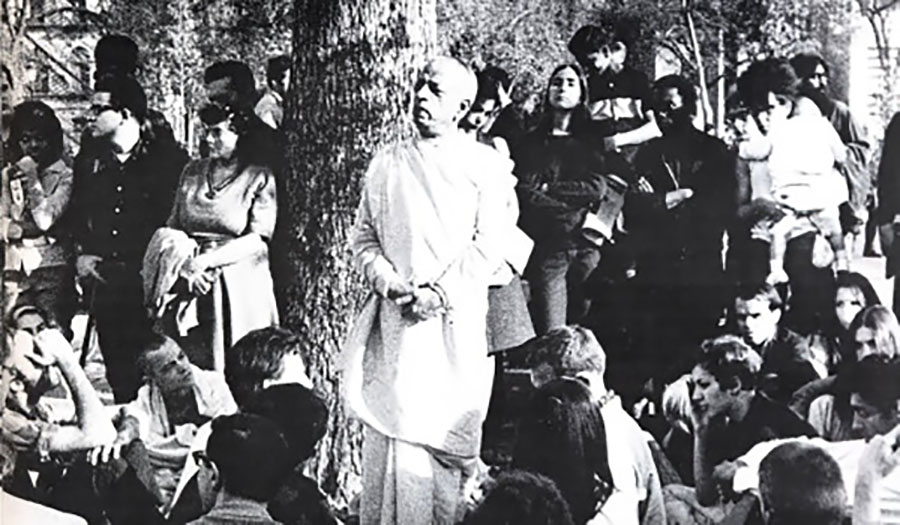ISKCON 50 Meditations: April 16, 2016
By Satsvarupa dasa Goswami | Апр 16, 2016

The Attraction of Sound
Carol: It was a very interracial, music-oriented scene. There were a few professional musicians, and a lot of people who enjoyed playing or just listening. Some people were painting in some of the lofts. And that’s basically what was going on. We had memorable kirtanas. One time there was a beautiful ceremony. Some of us went over early to prepare for it. There must have been a hundred people who came that day.
For the Bowery crowd, sound was spirit and spirit was sound, in a merging of music and meditation. But for Prabhupada, music without the name of God wasn’t meditation; it was sense gratification, or at most, a kind of stylized, impersonal meditation. But he was glad to see the musicians coming to play along in his kirtanas, to hear him and to chant responsively. Some, having stayed up all night playing somewhere on their instruments, would come by in the morning and sing with the Swami. He did not dissuade them from their focus on sound; rather, he gave them sound. In the Vedas, sound is said to be the first element in the material creation; the source of sound is God and God is eternally a person. Prabhupada’s emphasis was on getting people to chant God’s personal, transcendental name. Whether they took it as jazz, folk music, rock, or Indian meditation made no difference, as long as they began to chant Hare Krishna.
Carol: Whenever he had the chanting, the people were fairly in awe of the Swami. On the Bowery a kind of transcendence came out in a ringing of the cymbals. He used the harmonium and many people played hand cymbals. Sometimes he played the drum. In the very beginning he stressed the importance of sound, and the realization of Godhead through sound. That was, I suppose, the attraction that these musicians found in him – the emphasis on sound as a means to attaining transcendence in the Godhead. But he wanted a serious thing. He was interested in discipleship.















